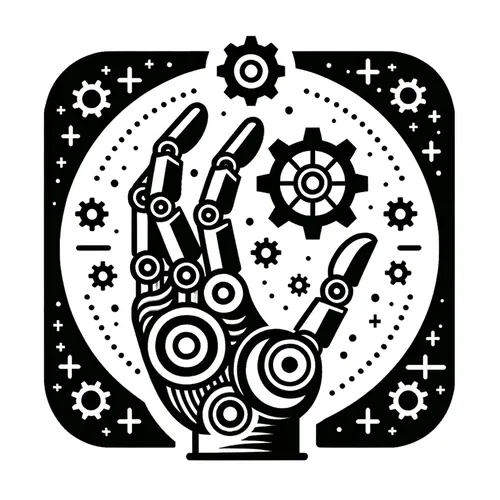Robots Steal Jobs & Hearts: AI's Steamy Love Affair with Industry
- Author
- Quiet. Please
- Published
- Sat 12 Apr 2025
- Episode Link
- https://www.spreaker.com/episode/robots-steal-jobs-hearts-ai-s-steamy-love-affair-with-industry--65547722
This is you Robotics Industry Insider: AI & Automation News podcast.
The robotics and automation industry continues to push boundaries, with artificial intelligence transforming how robots interact with their environments and carry out tasks. As of 2025, AI integration has enabled industrial robots to perform complex operations once deemed impossible for machine-based systems. In manufacturing, AI-powered robots streamline assembly lines, optimize quality control, and improve operational efficiency. For example, collaborative robots, or cobots, equipped with machine learning algorithms, are revolutionizing industries by dynamically adapting to tasks without requiring constant reprogramming. Such systems allow for increased flexibility and productivity, particularly in high-precision industries like automotive and electronics manufacturing.
One notable breakthrough is the use of generative AI, which simplifies robot programming using natural language interfaces. This innovation broadens access to automation for small and medium-sized enterprises, reducing the dependency on specialized programming expertise. Additionally, predictive maintenance, powered by AI's ability to analyze operational data, ensures minimal downtime in industrial facilities. By forecasting equipment failures, manufacturers can avert costly delays, which in industries like automotive parts can amount to millions of dollars in hourly losses.
In terms of market influence, the global AI-driven robotics sector has witnessed exponential growth. Industry statistics reveal that this market was valued at nearly $6.9 billion in 2021 and is projected to reach $35.5 billion by 2026, reflecting a compound annual growth rate of over 38 percent. These advancements are not only improving productivity but are also redefining safety in workplaces. Automating dangerous tasks reduces workplace injuries, with studies indicating significant declines in injury rates where robots are integrated into operations.
Recent developments also highlight expanding applications of collaborative robots. Cobots are now capable of safely working alongside humans in dynamic environments. Grocery chains, for instance, are trialing robots equipped with AI for inventory management, while agricultural operations are leveraging robotics for planting and harvesting with unprecedented precision. Partnerships between robotics companies and artificial intelligence firms are accelerating such innovations, ensuring that robots can learn, adapt, and optimize in real time.
Looking forward, the industry is steering toward universal accessibility and autonomy. Enhanced connectivity, real-time data processing, and simplified interfaces are expected to democratize the use of automation technologies across diverse sectors. Businesses yet to adopt these solutions should act swiftly to integrate AI-driven robotics, as the competitive edge offered by streamlined operations, cost savings, and improved output cannot be overstated. The future of automation lies in intelligent, collaborative systems capable of evolving with industry demands.
For more http://www.quietplease.ai
Get the best deals https://amzn.to/3ODvOta
